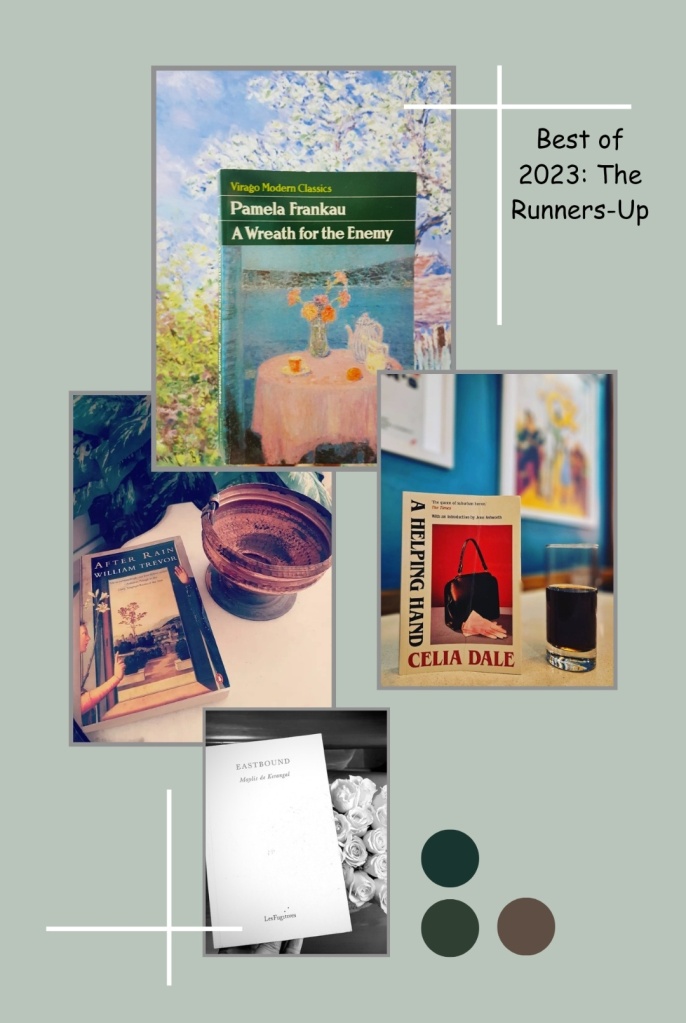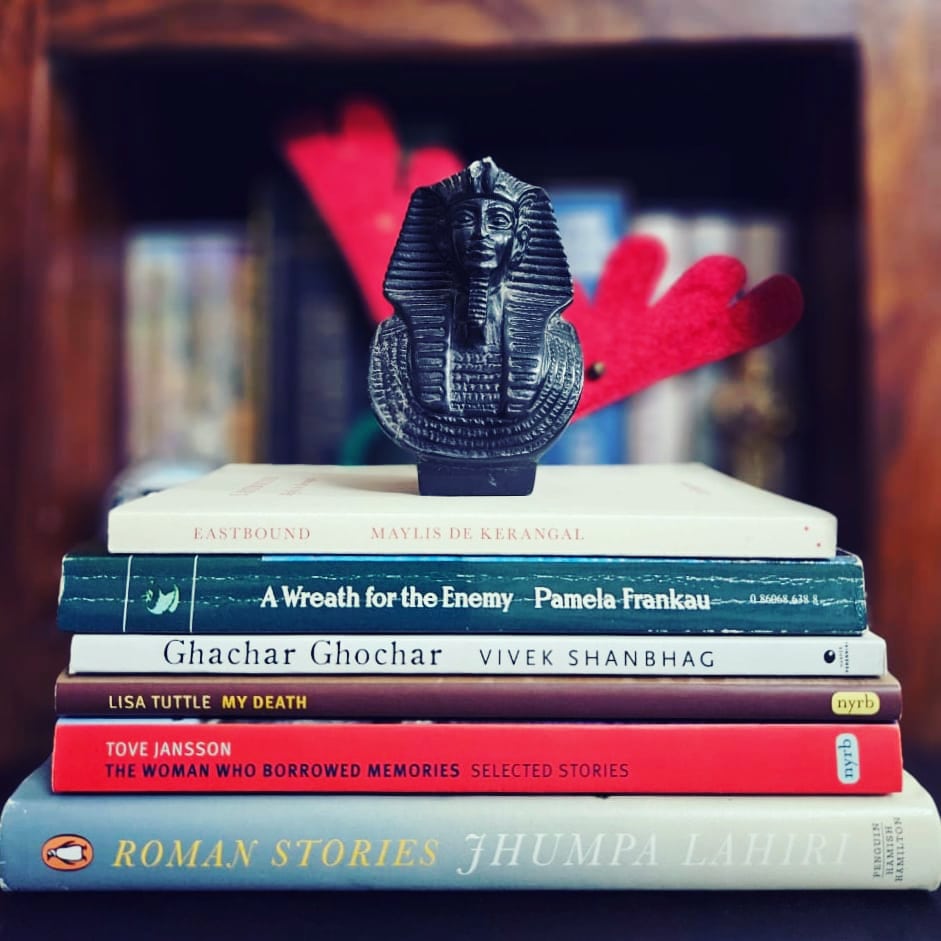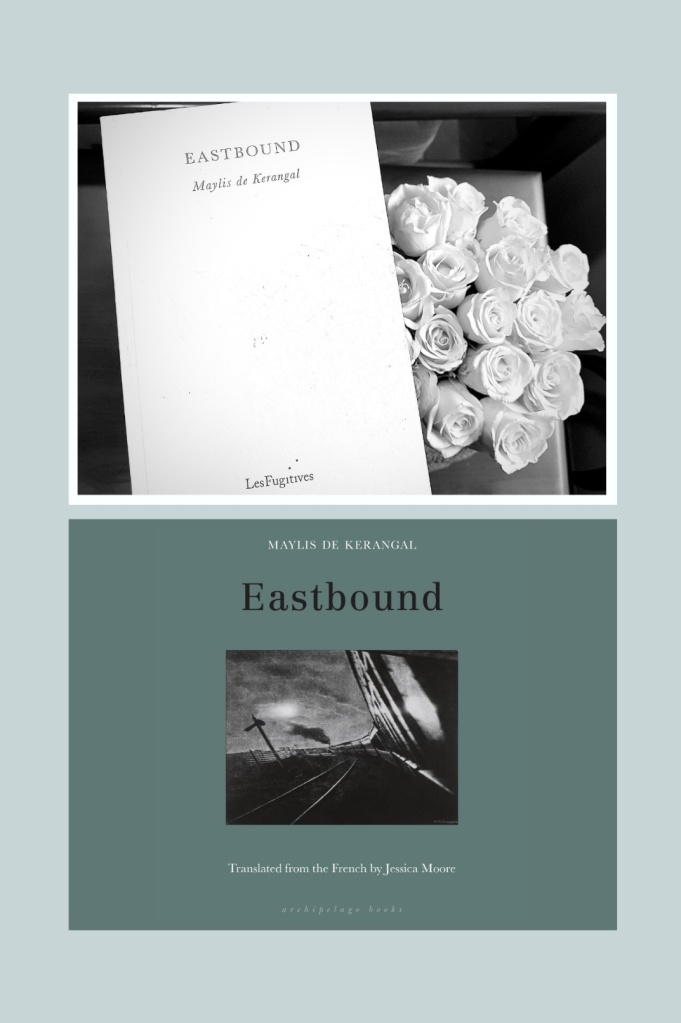I have been busy in May setting up and moving into our new home, so haven’t read much, and therefore haven’t blogged much either. So I have decided to put up another themed post instead, this time on some of my favourite Archipelago books in the last five years (of course, this list will evolve and could even change as I read more from the catalogue). It is also the third “Publisher” themed post on this blog – the first was on Fitzcarraldo Editions called The Best of the Blues, and the second was on my Favourite NYRB Classics.
So without much ado, here is my selection of eight favourite Archipelagos. For detailed reviews on each book, you can click on the title link…

THE ENLIGHTENMENT OF KATZUO NAKAMATSU by Augusto Higa Oshiro (Translated from Spanish by Jennifer Shyue)
Laden with poetic despair and immersed in a sea of swirling sentences, Augusto Higa Oshiro’s The Enlightenment of Katzuo Nakamatsu is an elusive, enigmatic, and intense tale of death, madness, isolation, and identity; a brilliant walking novel drenched in dreamlike vibes as it evocatively captures the pulse of Lima, its myriad sights and sounds, making it a deeply haunting reading experience.
We meet Katzuo Nakamatsu on the very first page standing on a pebbled path one August evening mesmerised by the magnificence of the sakura blossoms. If this conveys an aura of peace and tranquility, then it proves short-lived, because Katzuo is immediately gripped by an unnamable anguish, “the weight of consciousness, unseeing affliction.”
The Enlightenment of Katzuo Nakamatsu is replete with an array of sights, sounds, and rich imagery lending the novel a very tonal and visual quality that only enhances its strange beauty. The lyrical, labyrinthine, looping sentences not only convey the complex pathways of Katzuo’s disturbed mind but also the contours of the city on his walking jaunts – a place of contrasts alternating between sumptuous gardens, hypnotic beaches, quiet affluent neighbourhoods on one side, and the squalid, forbidden corners depicting degradation and filth on the other.
EASTBOUND by Maylis de Kerangal (translated from French by Jessica Moore)
Set aboard the Trans-Siberian Express, Eastbound is a stunning, propulsive, and suspenseful novella of fugitives, flight, and freedom. A young conscript Aliocha, barely twenty, is travelling with a slew of men of his ilk to some godforsaken outpost in Siberia. Right till the last moment, Aliocha refuses to believe that he will be forced to sign up for military service even when all his attempts to avoid conscription prove futile. Now he is on the train galloping towards an unknown destination beset by dread, entrapment, and the driving urgency to escape.
And yet, the strange workings of Fate throw him a lifeline. He meets Hélène, an older Frenchwoman in her 40s, who we learn is also a fugitive although Aliocha has no inkling of this at the time. As this fast and furious, adrenaline-charged novella hurtles towards its conclusion, Aliocha and Hélène will encounter some heart-stopping moments that could thwart their uneasy alliance and derail their journey toward freedom.
Thundering like a juggernaut, and teeming with nerve-wracking tension, Eastbound soars thanks to Kerangal’s gorgeous, haunting prose with its musical cadences and potent energy.
AUTUMN ROUNDS by Jacques Poulin (Translated from French Sheila Fischman)
Autumn Rounds is a subtle, beguiling novel about books and nature, a meditation on forming connections and finding love late in life that has the feel of a travelogue, both charming and melancholy at the same time.
The book opens on the eve of the Driver embarking on his summer tour. He hears faint notes of music drifting into his room, and when he heads out for a walk, he comes across a motley crew of performers – musicians, acrobats, jugglers – putting on a show on the streets for the audience. But then he chances upon Marie, the group’s manager of sorts, with “a beautiful face like Katharine Hepburn’s, a mixture of tenderness and strength”, and the attraction is immediate prompting them to strike up a conversation.
The Driver is entranced by Marie and her troupe, and they, in turn, are enamoured by the idea of a bookmobile, and soon an agreement is reached wherein the troupe will follow the same route taken by the Driver on his summer tour. The Driver arranges for a school bus for Marie and her crew for the purpose of this trip and they are all ready to set off. It’s a bittersweet, quietly powerful novel, a soothing balm for the soul, and there’s something about the goodness and kindness of the people within its pages that touches the heart.
A CHANGE OF TIME by Ida Jessen (Translated from Danish by Martin Aitken)
Set in a rural Danish village in the early 20th century, A Change of Time is a beautiful, quiet, and reflective novel told through the diary entries of a schoolteacher called Frau Bagge. The novel begins when her husband, Vigand Bagge, a mocking and cruel man, and who is also a respected village doctor, passes away. Subsequently, the novel charts her response to his death and her attempts to build herself a new life, find herself a new place and identity, and discover meaning in life again. An exquisitely written novel.
AN UNTOUCHED HOUSE by Willem Frederik Hermans (Translated from Dutch by David Colmer)
An Untouched House is a spare, taut war thriller sprinkled with doses of absurd comedy that considerably heightens its narrative power. Set during the waning months of the Second World War, when madness still abounds, a weary Dutch partisan chances upon a luxurious, intact estate in an abandoned spa town. Enjoying the comforts of this home while the war outside rages on, the partisan is hell-bent on avoiding the fighting at all costs, until the real owner of the house turns up. At less than 100 pages, An Untouched House pulses and throbs with dramatic tension in which, Hermans, in his unique way, confronts us with the idea of the violent absurdity of war and its terrible consequences for those unwittingly involved.
THE BIRDS by Tarjei Vesaas (Translated from Norwegian by Michael Barnes & Torbjorn Stoverud)
In The Birds, our protagonist is 37-year-old Mattis, who is possibly mentally challenged and lives with his elder sister Hege in a cottage by the lake in a Norwegian village. Since Mattis is not able to hold on to any job, the responsibility of providing falls on Hege’s shoulders, and she is now tired and lonely. Until one day a lumberjack called Jorgen enters their lives and uproots their daily existence. This is a sad but gorgeous novel about the difficulty of communicating with one another and the hurdles that intellectually disabled individuals have to grapple with.
DIFFICULT LIGHT by Tomás González (Translated from Spanish by Andrea Rosenberg)
A poignant, beautiful book touching upon big themes of family, loss, art, and the critical question of whether death can provide relief from a life filled with chronic pain. González is compassionate without being overtly sentimental. It’s a deeply moving novel that dwells on the intimacy and humour of a family, of displaying resilience amid pain, and as another author has put it, “manages to say new things about the way we feel.”
LOVE by Hanne Ørstavik (Translated from Norwegian by Martin Aitken)
Love is an unsettling novella set over the course of a single evening and night in a remote village in Norway during winter. Vibeke and her son Jon have just moved into this small village a few months ago. We are told in the opening pages that tomorrow is Jon’s birthday and he will turn 9 years old.
From the outset, it becomes apparent that there is some kind of disconnect between mother and son. Jon is pretty sure that Vibeke is going to bake a cake for his birthday tomorrow and decides to give her all the space she needs to do so. Vibeke, meanwhile, has forgotten her son’s birthday – something that is clear to the reader, but not to Jon. On that particular night, Vibeke and Jon are out of the house, but on their own with no inkling of what the other is up to.
Ørstavik infuses enough tension in her writing so that at the end of the chapters you are left wondering whether it will all turn out well for both mother and son. That the story is set in the depths of winter in a country close to the Arctic, serves as an atmospheric and stark contrast to the protagonists’ search for warmth and a sense of belonging.


